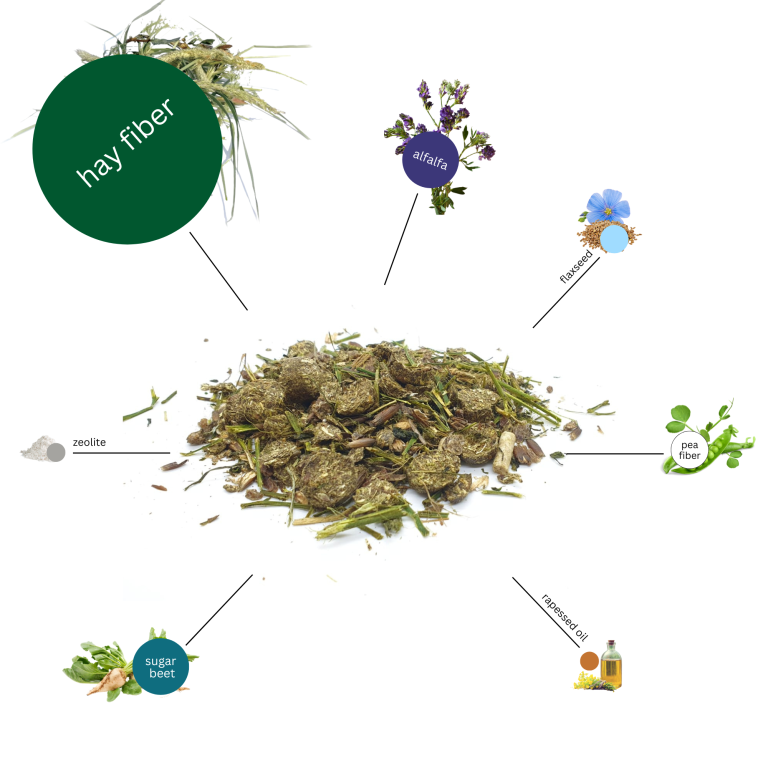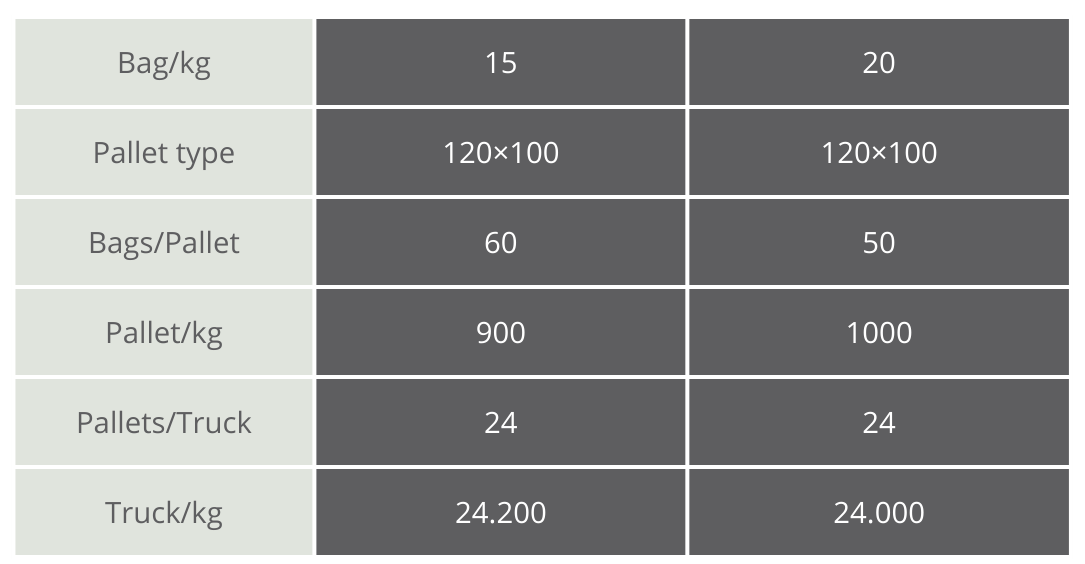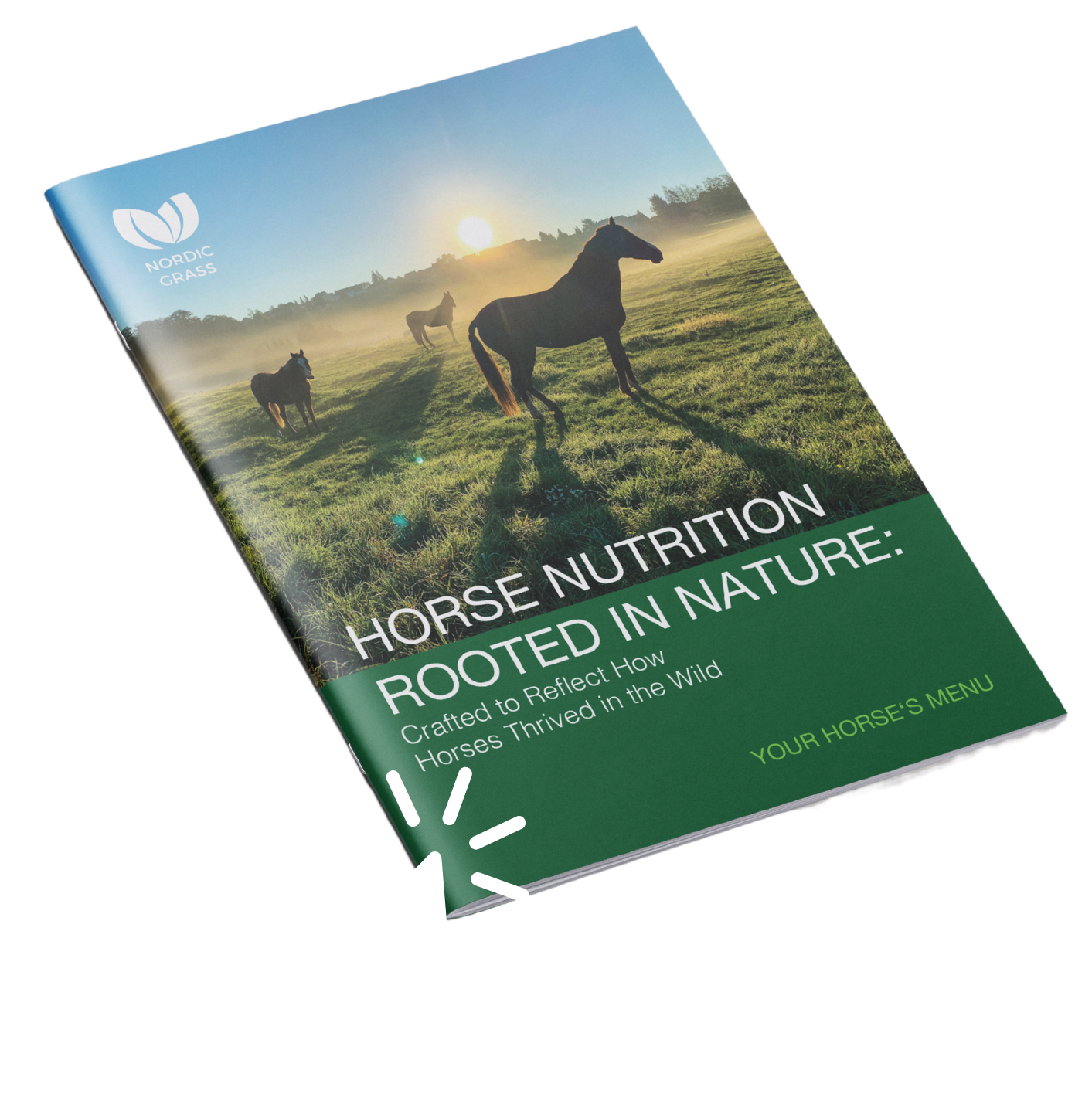Muesli. Omega daily fiber
“FUEL YOUR HORSE’S HEALTH AND PERFORMANCE WITH THE NATURAL GOODNESS OF PLANT FIBER-BASED MUESLI – THE SMART CHOICE FOR A HAPPY HORSE!”
OMEGA DAILY FIBER – our grain-free horse feed muesli, made with natural and high-quality ingredients to support your horse’s health and well-being. Our muesli contains a carefully balanced blend of pure and natural components providing essential nutrients, high content of omega fatty acids and energy without the use of grains or artificial additives.
With Nordic meadow hay our muesli is an excellent source of fiber, supporting digestive health and providing sustained energy for your horse. Alfalfa is that it is relatively high in protein and so can be used as an amino acids source, which can help support muscle development. Sugar beet pulp and pea fiber add additional highly digestible fiber for the balanced gut microflora development, while de-oiled flaxseed provides omega-3 fatty acids for a healthy coat and skin.
Our muesli also contains zeolite. Zeolite has a unique structure that allows it to bind with certain toxins and heavy metals, potentially helping to prevent their absorption into the horse’s body. Rapeseed oil adds healthy fats and enhances palatability and enriches the feed with omega fatty acids, without the use of molasses or artificial flavors.
At OMEGA DAILY FIBER, we are committed to using only the highest quality ingredients in our horse feed products. Our grain-free muesli is GMO-free, without artificial odors or flavors, ensuring the best nutrition and taste for your horse.
Try our grain-free horse feed muesli today and give your horse the natural and wholesome nutrition they deserve!
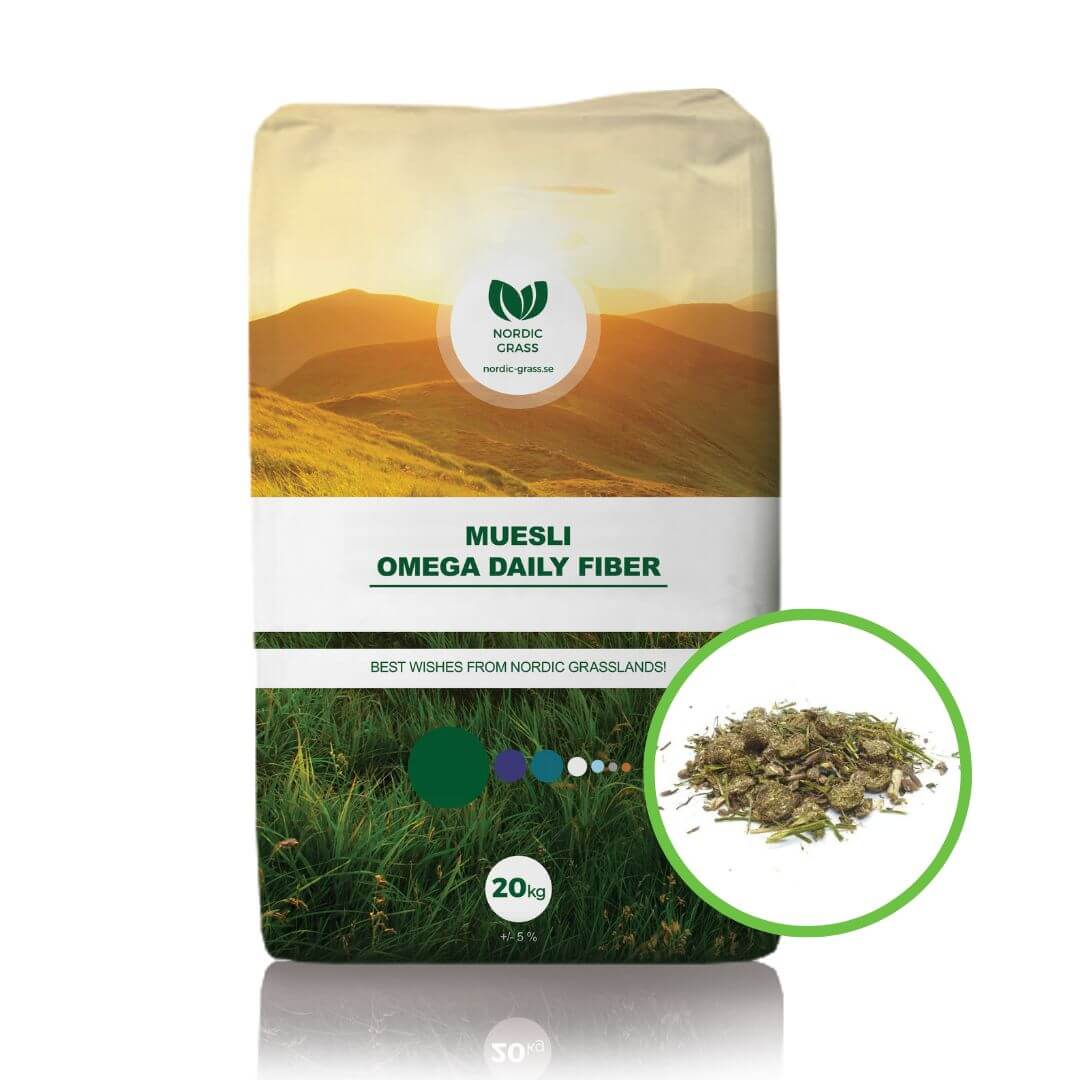

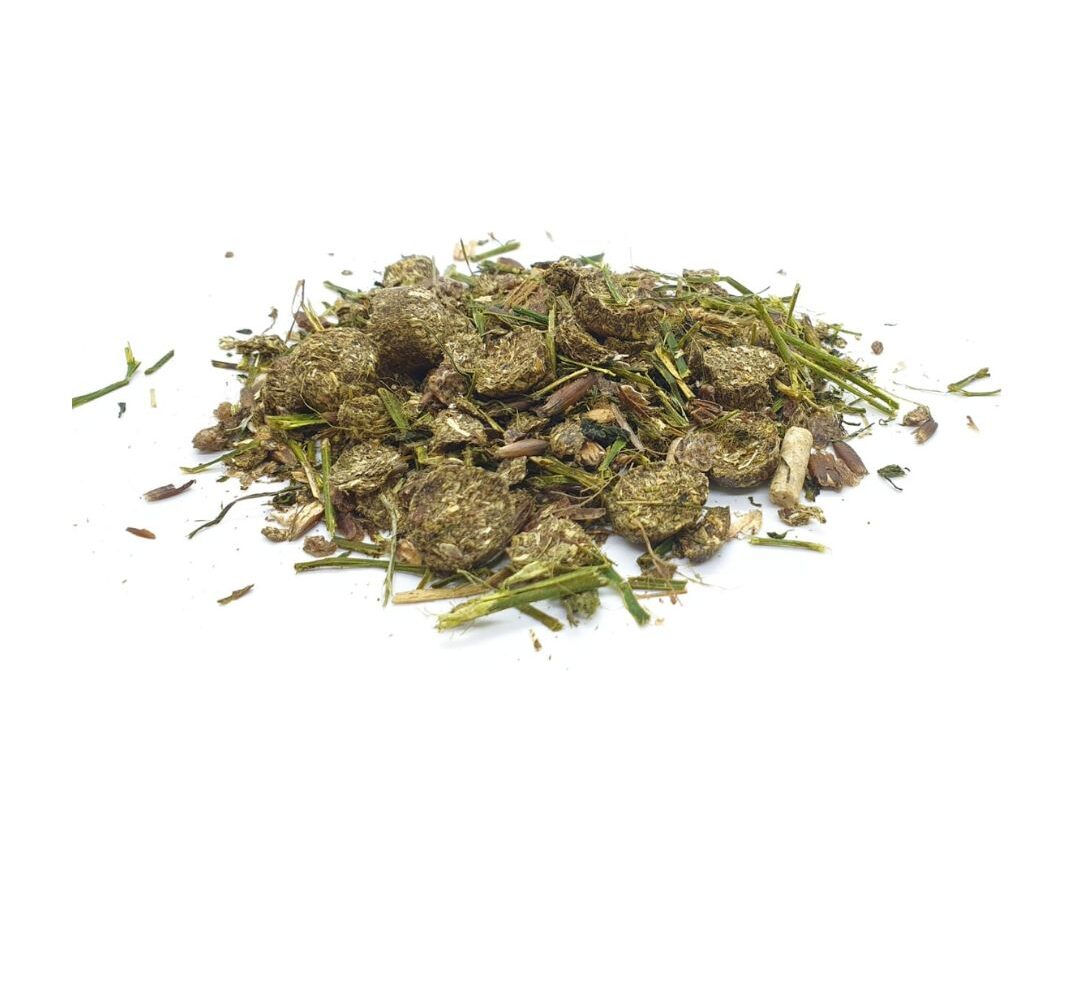
Our muesli contains a carefully balanced blend of pure and natural components providing essential nutrients and energy without the use of grains or artificial additives.
ANALYSIS
- Dry matter – 88.7%
- Crude protein - 13.2%
- Crude fiber - 30.88%
- Sugar – 5.27%
- Fruktan -
- Crude fat - 2.23 %
- Crude ash - 7.75
- Sand < 1,0%
- ME-Horse - MJ/kg
- verd. Energy (Horses) - MJ/kg
- pcv XP (praec.verd. Raw prot.) - %
- verd. Protein (Horses) - %
- NFC (Non-Fiber-Carbohydrates) - %
- Hemicellulose - %
- Part of Hemicellulose from total fiber - %
- Phosphorous (P) – 1.45 g/kg
- Calcium (Ca) – g/kg
- Potassium (K) – g/kg
- Magnesium (Mg) – g/kg
- Sodium (Na) < g/kg
- Sulfur (S) – g/kg
- Copper (Cu) - mg/kg
- Zink (Zn) - mg/kg
- Mangan (Mn) - mg/kg
- Iron (Fe) - mg/kg
Omega fatty acid content in % of total fatty acid content: Omega 3 – 23.3% (alpha linolenic acid); Omega 6 – 22.36% (linoleic acid); Omega 9 – 28.31% (oleic acid)
Amino acid content: Lysine – 5.47g/kg; Methionine – 2.71g/kg; Threonine – 4.92g/kg; Leucine – 8.67g/kg; Isoleucine – 5.45g/kg; Valine – 6.8g/kg (Total amino acids – 109.2g/kg)
APPLICATION
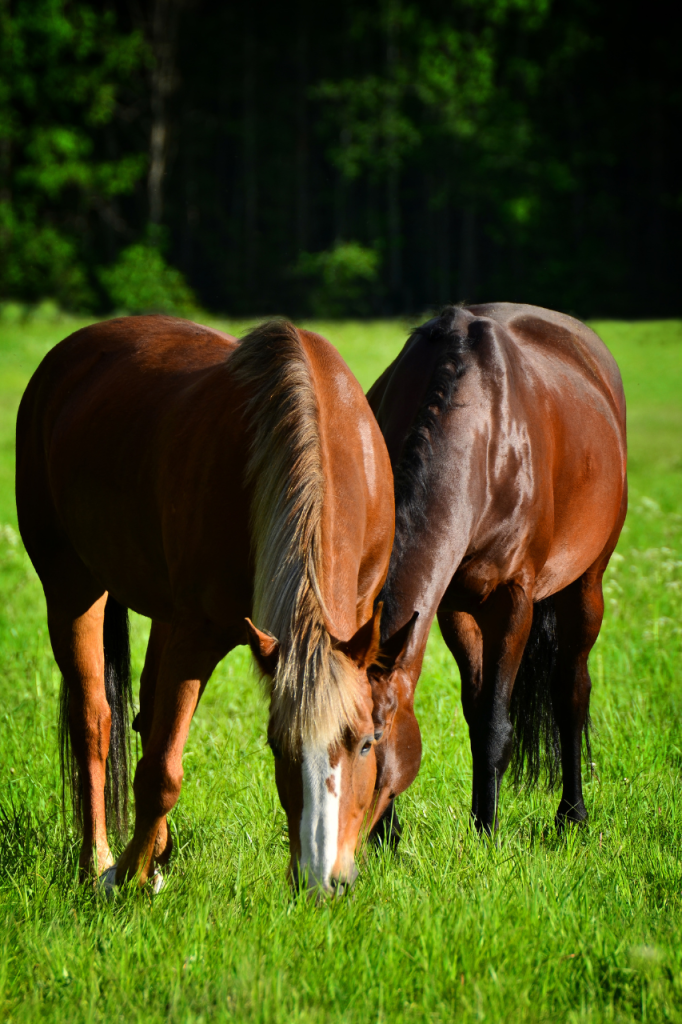
- As a basic feed for horses, we would recommend about 0.7 to 1.2 kg/day per 100 kg of horse’s weight depending on the load gain, offering our Omega Fiber Muesli swollen in water. Swelling the muesli in the water: add 1-1.5 parts water and wait at least 15 min before feeding. You can put the next morning's dose already in the evening and the evening's dose in the morning.
- As a supplement to the basic feed, we would recommend about 0.2 to 0.7kg/day per 100 kg of horse’s weight depending on the load gain.
- Determine Feeding Amount: Calculate the appropriate feeding amount based on your horse's individual needs, including factors such as age, weight, activity level, and overall health. Consult with a veterinarian or equine nutritionist for personalized recommendations if necessary.
- Gradual Introduction: Introduce the muesli feed gradually into your horse's diet over a period of 7 to 10 days to allow for gradual adjustment and minimize the risk of digestive upset.
- Divide into Meals: Divide the daily feeding amount into multiple meals throughout the day, ideally feeding at least two to three times daily. This helps promote more consistent nutrient absorption and reduces the risk of digestive issues like colic.
- Monitor Response: Monitor your horse's response to the muesli feed, including appetite, body condition, coat quality, and overall health. Adjust feeding amounts as needed based on your observations and any changes in your horse's condition.
- Provide Access to Fresh Water: Ensure your horse has access to clean, fresh water always, as increased fiber intake may increase water consumption. Adequate hydration is essential for proper digestion and overall health.
- Consider Additional Supplements: Depending on your horse's individual nutritional needs and the specific composition of the muesli feed, you may need to supplement with additional vitamins, minerals, or other nutrients to ensure a balanced diet.
- Storage: Store the muesli feed in a cool, dry place in a sealed container to maintain freshness and prevent spoilage. Follow any recommended storage guidelines provided by the manufacturer.
- By following these guidelines and monitoring your horse's response, you can effectively incorporate the muesli feed into your horse's diet to provide balanced nutrition and support overall health and well-being.
Benefits of Omega Daily Fiber muesli

Introducing our premium horse muesli, expertly crafted to provide a balanced and nutritious diet for your equine companion. Our muesli is formulated with a carefully selected blend of high-quality ingredients, each offering unique benefits to support your horse's health and well-being.

Rich in Fiber: With 58% hay fibers in flakes and 13% alfalfa fibers, our muesli promotes healthy digestion and gut function in horses. Fiber is essential for maintaining optimal bowel movements and preventing digestive disorders such as colic.

Nutrient-Dense: Our muesli contains 13% sugar beet pulp shreds in flakes, providing a source of fermentable fiber that supports a healthy hindgut environment. This fiber source also helps maintain steady energy levels without causing rapid spikes in blood sugar.

Additional Fiber Sources: We've included 5% pea fiber to further enhance the fiber content of our muesli, promoting satiety and supporting digestive health in horses.

Omega-3 Fatty Acids: Our muesli contains 2% de-oiled flaxseed, a rich source of omega-3 fatty acids that support skin and coat health, immune function, and overall inflammation regulation in horses.

Detoxification Support: We've added 1% detoxifier zeolite to our muesli formulation, which helps bind toxins and impurities in the digestive tract, supporting gastrointestinal health and overall well-being.

Healthy Fat Source: Our muesli includes 1% rapeseed oil, providing a source of fat and energy for horses with increased energy requirements or those needing to gain weight. Rapeseed oil also contains omega-6 fatty acids, which support skin, coat, and cellular health.

By choosing our horse muesli, you're providing your horse with a balanced and nutritious diet that supports digestive health, energy metabolism, immune function, and overall well-being. Trust in our premium ingredients and expert formulation to keep your horse happy, healthy, and thriving.
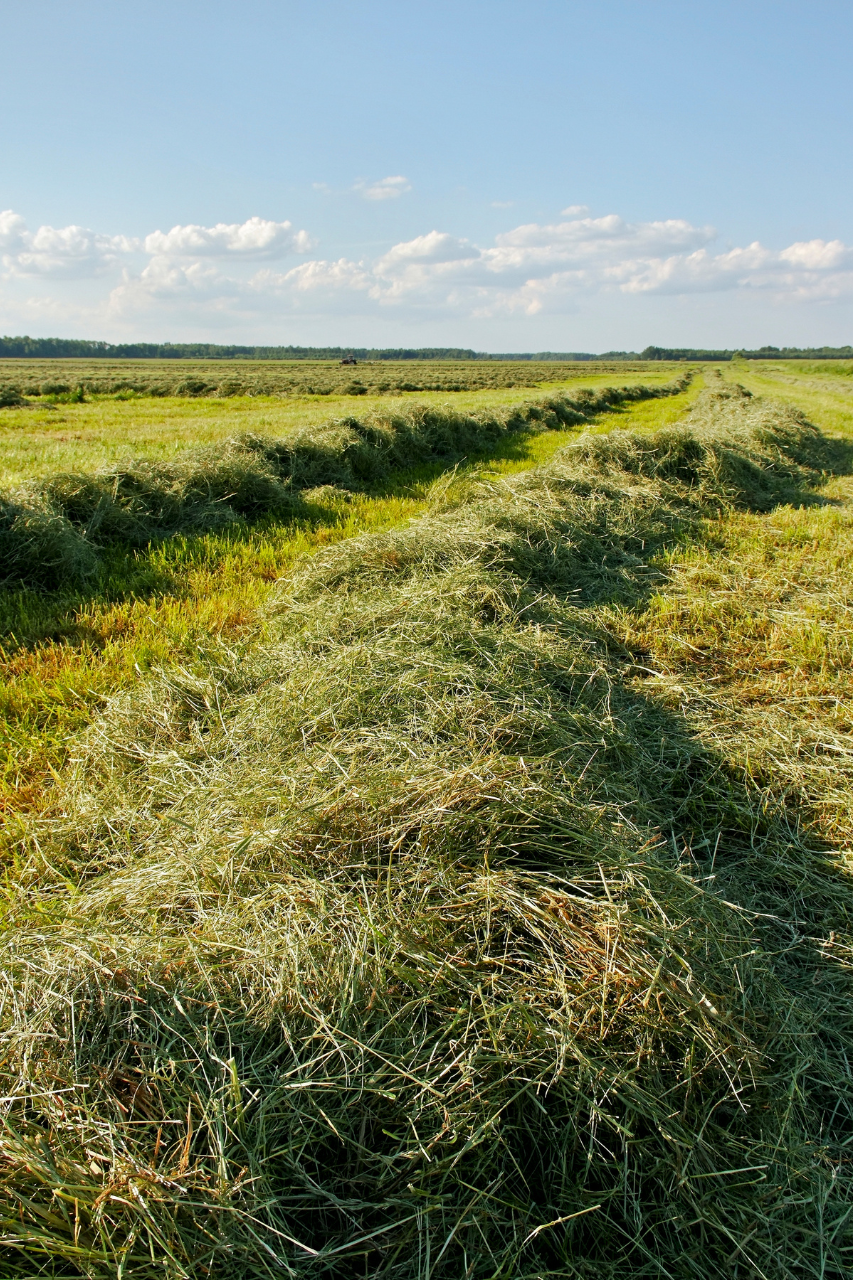
PACKAGING OPTIONS
We offer wide range of packaging options into our branded bags as well as the facility to label our products with your brand name and customized design or just pack it into blank bags. Different sizes of packaging are available for your convenience and are listed in a table below.
Bags are stacked on pallets and wrapped with stretch folio. The size of one-way pallets depends on customers request or on bag size. Big-bags also can be loaded into the truck with pallet below for easier unloading or handling in the storage.
All stacked pallets with small bags can be supplied with rain cover on top to make it possible to store outside (not included in the standard packaging ).
Separate component benefits
- Hay serves as a foundational component of the equine diet, offering a balanced blend of nutrients essential for supporting overall health, performance, and well-being in horses.
- Hay contains essential nutrients such as protein, vitamins (e.g., vitamin A, vitamin E), and minerals (e.g., calcium, phosphorus), which are vital for various physiological functions, including muscle development, immune system function, and bone health.
- Rich in dietary fiber, primarily in the form of cellulose and hemicellulose, which are crucial for maintaining digestive health and proper bowel function in horses.
- The carbohydrates in hay, mainly in the form of structural polysaccharides, serve as a valuable energy source for horses, supporting their metabolic needs and physical activities.
- The roughage provided by hay promotes healthy microbial fermentation in the horse's hindgut, aiding in the digestion and utilization of nutrients while reducing the risk of digestive disorders like colic and gastric ulcers.
- Hay can be effectively utilized in feeding programs to help manage a horse's weight, providing bulk and satiety without excessive calorie intake, which is beneficial for maintaining a healthy body condition score.
- Alfalfa serves as a valuable component of the equine diet, providing essential nutrients, supporting digestive health, and contributing to overall well-being and performance in horses.
- It is rich in protein, providing essential amino acids necessary for muscle development, repair, and overall growth.
- Contains high levels of vitamins (e.g., vitamin A, vitamin E) and minerals (e.g., calcium, phosphorus), supporting various physiological functions such as immune function and bone health.
- High fiber content, particularly soluble fiber, promotes healthy digestion and gut function in horses, reducing the risk of digestive disorders such as colic.
- Alfalfa is a good source of carbohydrates, supplying horses with readily available energy for metabolic processes and physical activities.
- Many horses find alfalfa palatable due to its sweet taste and aroma, making it an attractive option for picky eaters or horses with reduced appetite.
- Sugar beet pulp is rich in fiber, particularly soluble fiber, which promotes healthy digestion and gut function in horses. It can help regulate bowel movements and prevent digestive issues such as colic and impaction.
- Despite its name, sugar beet pulp contains relatively low levels of sugar and starch compared to grains like oats or corn. This makes it a suitable option for horses that need to maintain stable blood sugar levels, such as those with metabolic conditions like insulin resistance or equine metabolic syndrome.
- Sugar beet pulp contains fermentable fiber that can be broken down by beneficial bacteria in the hindgut, producing volatile fatty acids (VFAs) that serve as an additional energy source for horses. This can help maintain energy levels during exercise or support weight gain in horses needing additional calories.
- It also has the ability to absorb large amounts of water, leading to increased water intake and hydration in horses. This can be beneficial, especially in hot climates or for horses prone to dehydration, as adequate hydration is essential for overall health and performance.
- Many horses find sugar beet pulp palatable, making it an attractive option for picky eaters or horses with reduced appetite. It can be easily incorporated into a horse's diet as a carrier for supplements or medications.
- Overall, sugar beet pulp is a valuable addition to the equine diet, providing essential fiber, supporting digestion, hydration, and overall health in horses. It is often used as a feed ingredient or supplement to meet the nutritional needs of various horses, from performance athletes to senior equines.
- Pea fiber is rich in dietary fiber, which plays a crucial role in maintaining digestive health and bowel regularity in horses. It helps promote the movement of food through the digestive tract and can aid in preventing issues such as colic and impaction.
- Like other plant-based fibers, pea fiber contains fermentable components that can be broken down by beneficial bacteria in the hindgut. This fermentation process produces volatile fatty acids (VFAs), which serve as an additional energy source for horses. This can be particularly beneficial for horses needing extra calories or energy for performance or weight gain.
- Pea fiber is low in non-structural carbohydrates (NSC), making it suitable for horses that require a low-starch diet, such as those with metabolic conditions like insulin resistance or equine metabolic syndrome. It provides a source of energy without causing rapid spikes in blood sugar levels.
- Many horses find pea fiber palatable, making it easy to incorporate into their diet. It can be mixed with other feeds or supplements to improve overall palatability and encourage horses to consume their meals willingly.
- The fiber content in pea fiber helps promote a healthy microbial population in the hindgut, which is essential for efficient digestion and nutrient absorption. A balanced gut microbiome contributes to overall digestive health and immune function in horses.
- De-oiled flaxseed is a concentrated source of omega-3 fatty acids, particularly alpha-linolenic acid (ALA). Omega-3 fatty acids play a crucial role in supporting skin and coat health, reducing inflammation, and supporting overall immune function in horses.
- The omega-3 fatty acids in flaxseed help maintain healthy skin and a glossy coat in horses. Regular supplementation may alleviate skin conditions such as dryness, itching, or dull coat, promoting a healthier appearance.
- Omega-3 fatty acids have natural anti-inflammatory properties, which can benefit horses with inflammatory conditions such as arthritis or laminitis. By reducing inflammation, flaxseed may help alleviate pain and discomfort associated with these conditions.
- The anti-inflammatory effects of omega-3 fatty acids can also support joint health in horses. Flaxseed supplementation may help reduce joint inflammation and stiffness, improving mobility and overall comfort, especially in older or performance horses.
- Omega-3 fatty acids play a role in supporting immune function, helping horses maintain a strong immune system to defend against infections and illnesses. Regular supplementation with flaxseed may contribute to overall health and well-being in horses.
- Flaxseed contains soluble fiber, which can support digestive health by promoting regular bowel movements and preventing constipation. Additionally, the fiber content may help stabilize blood sugar levels and support hindgut fermentation in horses.
- Overall, de-oiled flaxseed is a valuable addition to the equine diet, providing essential omega-3 fatty acids and supporting various aspects of health, including skin and coat condition, joint health, immune function, and digestive health in horses. It can be incorporated into the diet as a supplement or added to commercial feeds to meet the specific nutritional needs of individual horses.
- Zeolite has a unique structure with a high surface area and a negative charge, allowing it to attract and bind to positively charged molecules, including toxins, heavy metals, and ammonia. This property may help reduce the risk of mycotoxin contamination in feed, as well as absorb and neutralize toxins in the digestive tract, supporting gastrointestinal health in horses.
- By binding to toxins and impurities in the digestive tract, zeolite may help promote a healthy gut environment and reduce the risk of digestive disorders such as colic and diarrhea. It can also support the growth of beneficial bacteria in the gut microbiome, contributing to overall digestive health and function in horses.
- Zeolite's ability to absorb ammonia and other odorous compounds makes it a useful additive for reducing odors in horse stalls and barns. By capturing and neutralizing odors, zeolite can help create a more comfortable and hygienic environment for horses and stable personnel.
- Zeolite's porous structure allows it to absorb and retain water molecules, making it useful for moisture management in horse bedding materials. By absorbing excess moisture, zeolite can help maintain a dry and comfortable bedding surface, reducing the risk of skin irritation and hoof-related issues in horses.
- By reducing ammonia levels in the stable environment, zeolite may help improve air quality and reduce respiratory irritation in horses. This can be particularly beneficial for horses with respiratory conditions such as heaves or recurrent airway obstruction (RAO), as well as for overall respiratory health and comfort.
- Overall, while research on zeolite specifically in horses is limited, its ability to bind toxins, control odors, manage moisture, and potentially support gut and respiratory health makes it a promising additive for use in equine management practices. As with any supplement or management strategy, it's essential to consult with a veterinarian or equine nutritionist to determine the appropriate use and dosage of zeolite for individual horses.
- Rapeseed oil is a concentrated source of energy, providing horses with a readily digestible and metabolizable source of calories. It is particularly useful for horses needing to gain weight or those with high energy requirements, such as performance horses or horses in heavy work.
- It contains predominantly unsaturated fats, including monounsaturated and polyunsaturated fats, which are beneficial for heart health and overall well-being. These fats are essential for maintaining cellular function, supporting hormone production, and providing insulation and protection for vital organs.
- Rapeseed oil contains omega-6 fatty acids, such as linoleic acid, which play a role in maintaining healthy skin and coat in horses. These fatty acids contribute to skin elasticity, hydration, and overall coat condition, promoting a shiny and lustrous appearance.
- While rapeseed oil contains omega-6 fatty acids, which can contribute to inflammation when consumed in excess, it also contains omega-3 fatty acids in smaller amounts. The balance between omega-6 and omega-3 fatty acids in rapeseed oil may help modulate inflammation in the body, supporting joint health and reducing the risk of inflammatory conditions such as arthritis or laminitis.
- Many horses find rapeseed oil palatable, making it easy to incorporate into their diet. It can be mixed with feed or added to supplements to improve palatability and encourage horses to consume their meals willingly.
- The fatty acids in rapeseed oil contribute to the health of the skin, coat, and hooves in horses. Regular supplementation may improve coat condition, reduce skin dryness or flakiness, and promote hoof integrity and strength.

